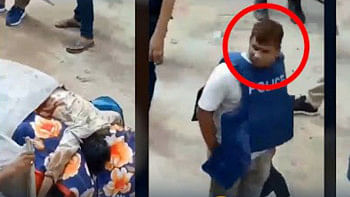High time parties found common ground

If political parties don't find common ground on setting up an acceptable election-time government, the country could face a political crisis, said political analysts and opposition leaders yesterday.
The observations came at a seminar titled "Common Ground: How to Get to Free and Fair Elections", held at a hotel in the capital. It was organised by Dhaka Tribune with support from the Norwegian embassy.
Speakers said transfer of power, especially under political governments, in Bangladesh has always faced difficulties. Elections were mostly free and fair under caretaker governments.
Awami League has been in power for the last 14 years, and the two elections that were held under its government were marred by allegations of vote rigging. So, the opposition has little trust in the upcoming elections, they said.
Ahead of the next national polls, BNP already held rallies in all divisional districts, and the Dhaka rally on December 10 drew national and global attention. Seven BNP lawmakers have resigned.
For fair elections, BNP is demanding a caretaker government, the provision of which was abolished in 2011 through the 15th amendment. Foreign diplomats have also made repeated calls for free, fair and participatory elections.
At the event, Norwegian Ambassador Espen Rikter-Svendsen said, "At the moment, we are at the early stage of elections, but time is running fast, and we see challenges in many directions. It is very important not to lose momentum."
Brotee Executive Director Sharmeen Murshid, who monitored many of the previous elections, said she does not believe that the present Election Commission can deliver a fair election under the current government.
Mentioning that violence and legal irregularities are two major obstructions to fair polls, she said the government and opposition are already confronting each other, and it is high time for political parties to find common ground for a peaceful and fair election.
Sharmeen added that it is also time for the international community to be part of the process. If not a caretaker government, an interim arrangement for elections is required.
Noting that the 2014 and 2018 elections were rigged, BNP International Affairs Secretary Rumeen Farhana said the democratic institutions have been destroyed, and so, there is no check and balance. BNP leaders and activists also face legal and political repression.
"So, a participatory election is a bare necessity to restore peoples' representation and accountability in governance," she said.
Gano Samhati Andolan Chief Coordinator Zonayed Saki said it is not a matter of pride that after 50 years of independence, the country is debating over election-time government.
He said there has been huge plundering of public money, and the state has become more authoritarian. However, the party in power justifies it in the name of the Liberation War. Thus, the country is becoming more and more divided.
Political scientist Prof Rounaq Jahan said it is imperative to make sure that the elected government is not in a position of "winner takes all". If that is the reality, there is no possibility of fair election.
Awami League MP Nahim Razzaq said it is BNP that, during its tenure from 2001 to 2006, corrupted the caretaker government by extending the retirement age of judges.
Razzaq stressed that institutional reforms are more imperative than talking about bringing back the caretaker government, which is temporary in nature.
"Yet, we are open for dialogue. BNP should also come with openness, not setting conditions for a caretaker government," he said.
Former ambassadors, politicians, academics and officials from various foreign embassies were present at the event.

 For all latest news, follow The Daily Star's Google News channel.
For all latest news, follow The Daily Star's Google News channel. 




Comments